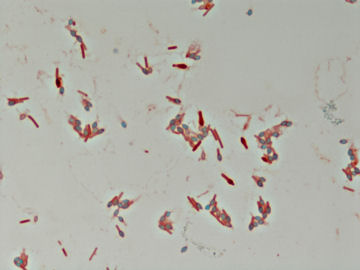A study by DVM Elias Dahlsten and colleagues under Prof. Hannu Korkeala’s supervision suggests a previously unidentified role for the alternative sigma factor SigK in response and adaptation to low temperature and high salt conditions in Clostridium botulinum. The study was published in Applied and Environmental Microbiology.
C. botulinum ATCC 3502 wild type strain was
evaluated for relative sigK expression levels after cold shock, exposure to hyperosmotic conditions, exposure to acidity, or in optimal growth conditions, using quantitative reverse transcription PCR. Significant induction of sigK expression was observed upon temperature downshift and in hyperosmotic shock, but not in pH downshift or in optimal growth. Insertional inactivation of sigK with the ClosTron system resulted in a phenotype with impaired growth at low temperature and in high salt concentration, but with no difference in growth at optimal temperature or low pH conditions.
To date, SigK of clostridia has been strictly sporulation-associated. In this study, the researchers suggest a hitherto unidentified role for this alternative sigma factor in stress tolerance. Study of mechanisms by which the feared foodborne pathogen C. botulinum senses and responds to various environmental stresses it might encounter as hurdles applied in food preservation is of key importance. Identification of stress-activated genetic machineries of foodborne pathogens might provide biomarkers to exploit in detection of potentially stress-adapted cells, allowing targeted control methods.
The research was carried out at the Finnish Centre of Excellence in Microbial Food Safety Research and supported by the Academy of Finland, the Finnish Graduate School on Applied Bioscience, the European Community’s Seventh Framework Programme FP7/2007-2013 “CLOSTNET”, and the Walter Ehrström Foundation.